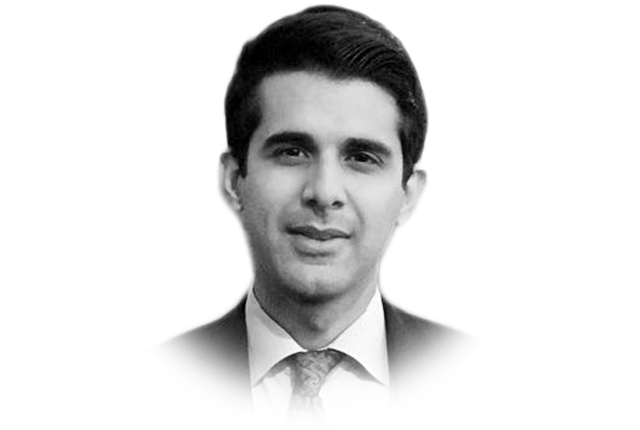
A rough dig on someone who considered himself a poet.
“The language of politics is poetry,” the real Nixon once said, “not prose.” “Jackson is poetry, Cuomo is poetry, Dukakis is a word processor.”
“As dull as a word processor,” Nixon had called Dukakis. Of course, Nixon could have done with some less poetry and more word-processing by the end of his term in office. Dukakis served two successful terms as governor of Massachusetts, while Nixon was relegated to the dark “gates” of history, a tarnished legacy. It was Dukakis who had the last laugh then, “ha hoo.”
But Nixon was on to something with the poetry bit. Surely, he didn’t make it to the Presidency based on his understanding of the mechanics of human joy expressed through laughter, or the lack thereof. He was indeed a poet. And spoke of a different kind of poet, the political poet.
Political poetry is not the beautiful arrangement of words to inspire the listener, instead it oozes with gluttonous use of plausible deniability, as it becomes to each reader what the reader wants to read. Political poetry is open to interpretation, you don’t really make claims, you don’t disclaim anything either, you just whisper, loud enough for it to exist, but silent enough for you to deny having whispered the same, should the need arise. It is an art in its own, one of tight-roping public opinion, not offending people in a place where offence is perhaps easiest taken. Such poetry should serve for your day-to-day political needs. From speeches, to resolutions, to meetings to statements. Everything has to be open-endedly mysteriously, relatably poetic. Speaking of politics, politics in Pakistan isn’t prose. It is not clearly defined narratives based on scientific, discernable facts. It’s poetry. Politics here is metaphorical, based on the philosophical, even hypothetical, but never the actual. The subject of the politics, whether it is a competitor analyzing a statement, a power center discerning a course of actions, or a layman trying to analyse a speech, is held in constant suspense over the meaning of such politics.
The reason why it is necessary to do so perhaps is because of the many power centres in Pakistan. In Pakistan, power centres change every few kilometers. Every city, every street has its own person that you cannot offend, and so you would find yourself adjusting your positions and templates every so often. Unless of course you resort to poetry. A language so vague, it may as well not exist. A position so subtle, the offence is not for you to give, but for the subject to question taking. That is the sweet spot of Pakistani politics, one of general, indefinite ambiguity.
But with ambiguity comes inefficiency, and then ineffectiveness. Alas, like a poet serenading his listeners, the Pakistani politician speaks not to effectuate, or correct, but to soothe and calm. There is nothing more calming then telling someone what they want to hear. Saying the same thing to a mass of people, but telling each of them what each wants to hear, each different from the other, is politics here. Once the serenading is done, the position disappears into thin air, as if it had never existed at all. You can’t effectuate a position if it doesn’t really exist in the first place.
But what use is political poetry if it does not effectuate?
Political poetry does effectuate, but most often, this effect is to entrench the status quo. Change cannot take place unless you take a position expressly different from the status quo. Rarely, if ever, does that happen in Pakistan. Clear ideological positions regularly become victim to political aisle-hopping, which is also an underappreciated art mastered by Pakistani politicos, as politicians move from one end of the political spectrum to the other faster than you can say “hypocrisy.” But perhaps the most significant effect of political poetry is of propagating enough ambiguity, for a general sense of stability to prevail, an equilibrium of controlled chaos, where people feel secure enough not to agitate, yet are insecure enough to continuously fear the unknown.
Politics in Pakistan is also not moral. This is not to say that politics in Pakistan is immoral. Once again it exists in a sweet spot of undefined amorality. The Pakistani politician is not concerned with the rightness or wrongness of his or her politics, rather the popularity of it. The morality of Pakistani politics is indiscernible. But most importantly, Pakistani politics is amoral because it has no effect. You can’t adjudicate the morality of an action, if the action itself can’t be discerned.
So what good is an ineffective, amoral, almost nihilistic brand of politics?
Our brand of politics may be romanticised as poetic, just as Nixon romanticised his own but such romanticising shouldn’t be condoned as a general state of well-being. Ambiguity, plausible deniability and inefficacy through poetic words like “consensus” and “reconciliation,” just as examples, will keep the herd calm and in shape, but there’s no telling where this herd is headed. The herd, then, could use some unambiguous, steadfast and actionable prose of the word processor kind to find its direction, rather than wander aimlessly in blissfully ambiguous political poetry.
Published in The Express Tribune, November 16th, 2018.
Like Opinion & Editorial on Facebook, follow @ETOpEd on Twitter to receive all updates on all our daily pieces.












COMMENTS (1)
Comments are moderated and generally will be posted if they are on-topic and not abusive.
For more information, please see our Comments FAQ